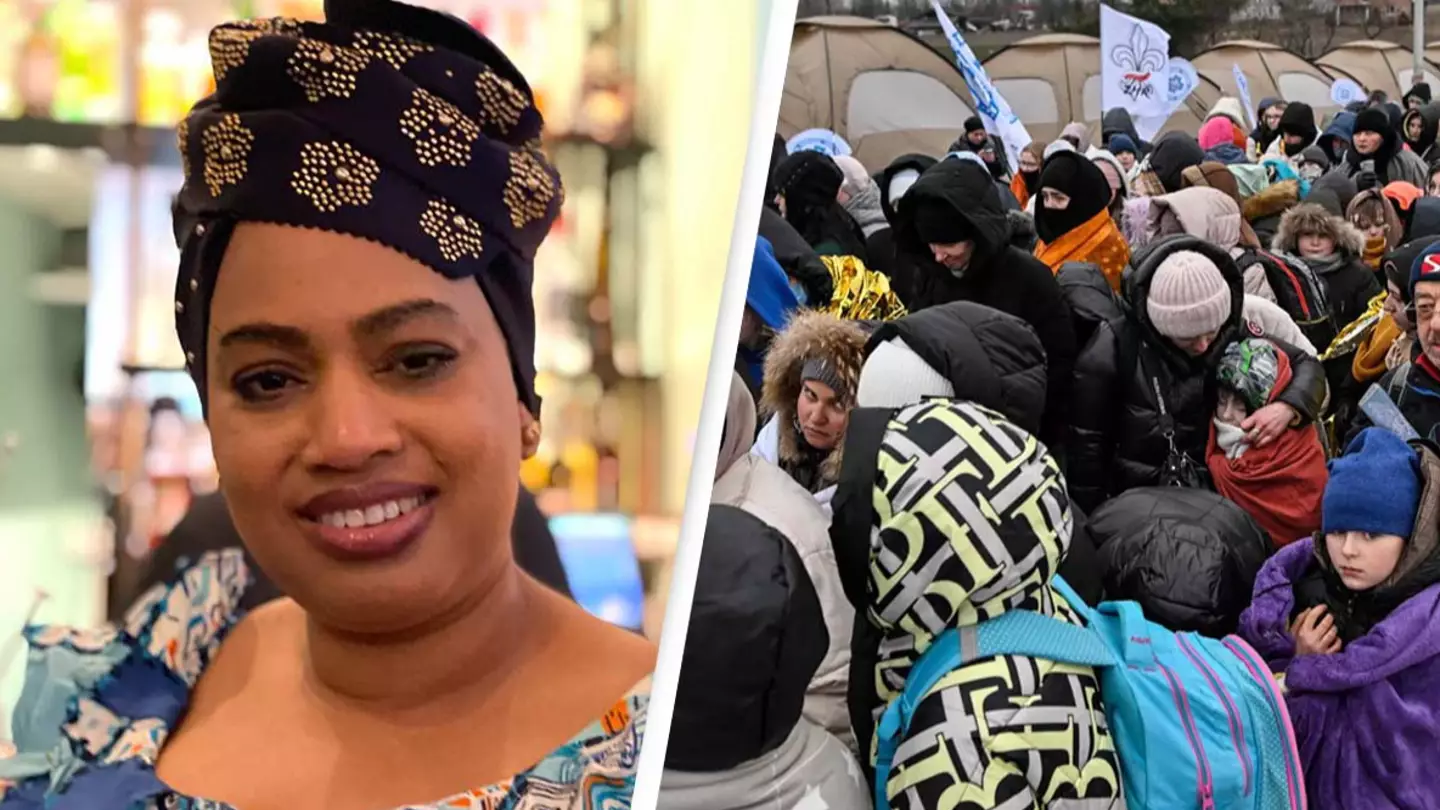
A refugee who left home as a teenager has recalled her experiences in a refugee camp where she was left without some of the most basic supplies.
Hawa Bah, from Guinea, escaped her home country as a teenager after becoming a victim of female genital mutilation (FGM), which concerns injury to the female genital organs for non-medical reasons.
At just 17 years old, Hawa made the courageous decision to run away from not only her parents but also the husband with whom she'd been forced into a non-consensual child marriage.
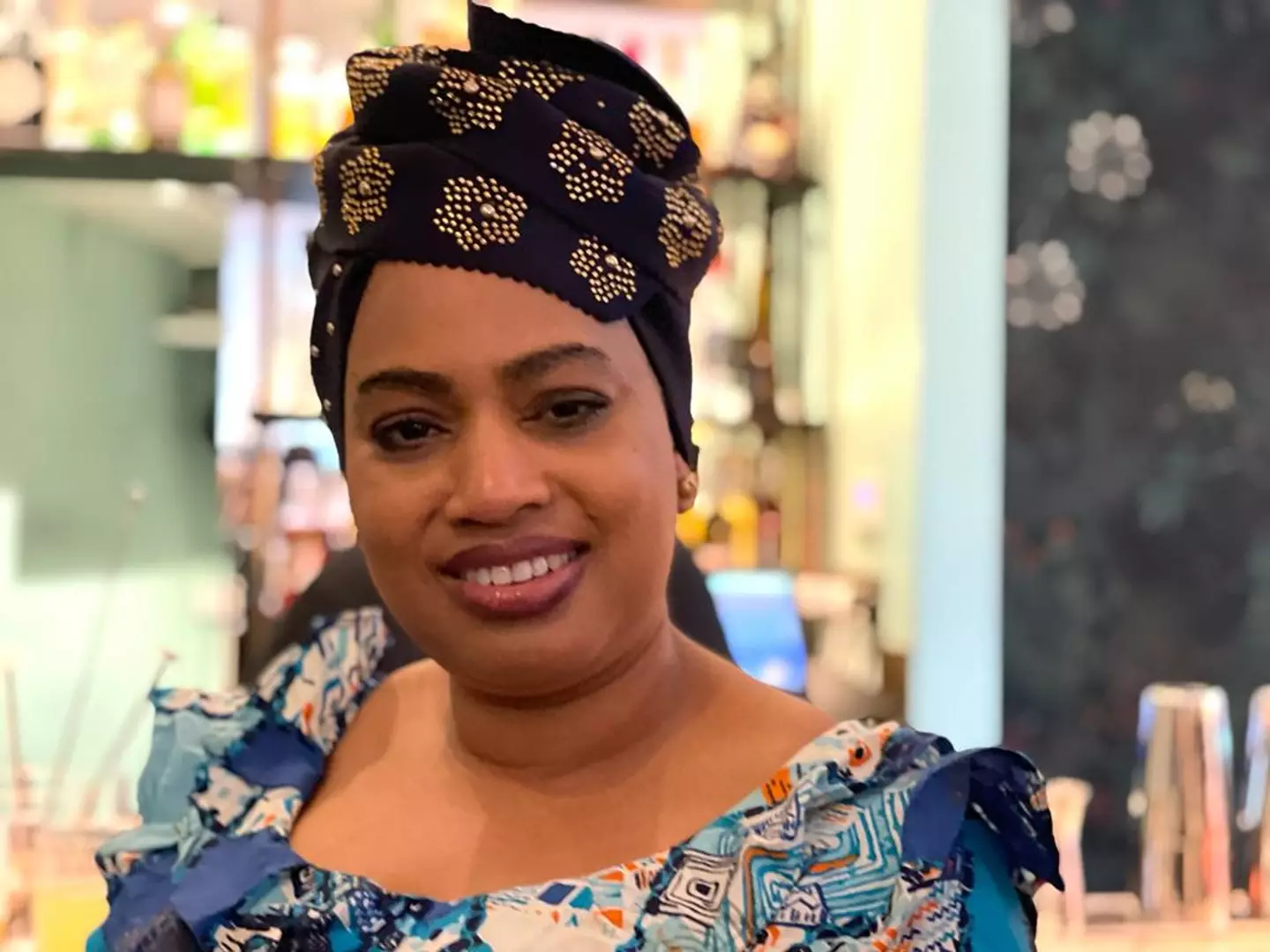
Advert
After she made it to the UK and, after going to the Home Office, Hawa was 'straight away' taken to a hotel 'in the camp for asylum seekers', where she found herself facing a whole new set of challenges.
Hawa spent 'just a few days' at the camp - the name and location of which she doesn't remember - before she was later moved to a 'housing association' in Leeds where she now currently resides.
Hawa, who has since been granted refugee status after entering the UK as an asylum seeker, was immediately faced with a 'language barrier', meaning she 'struggled a lot with the Home Office' during her attempts to sort out various legal and bureaucratic processes, and had a lot to get used to after the move.
"It was very difficult," Hawa recalled. "It was a different environment, different culture, different dress code, different food, different weather."
They were far from the only struggles Hawa faced, though.
Hawa had very few people to turn to for advice whenever she got her period after coming to the UK.
"No one offered me a pad," she revealed before adding that she was 'embarrassed to even talk about it [periods] because of the culture'.
She explained: "The barrier for the period products was very difficult because of the cost of living and, also, we can't afford it - it is so expensive."
As a result, Hawa told UNILAD she 'used to use newspaper' as a means of absorbing the blood.
She explained: "I was a bit shy so what I did was use newspaper."
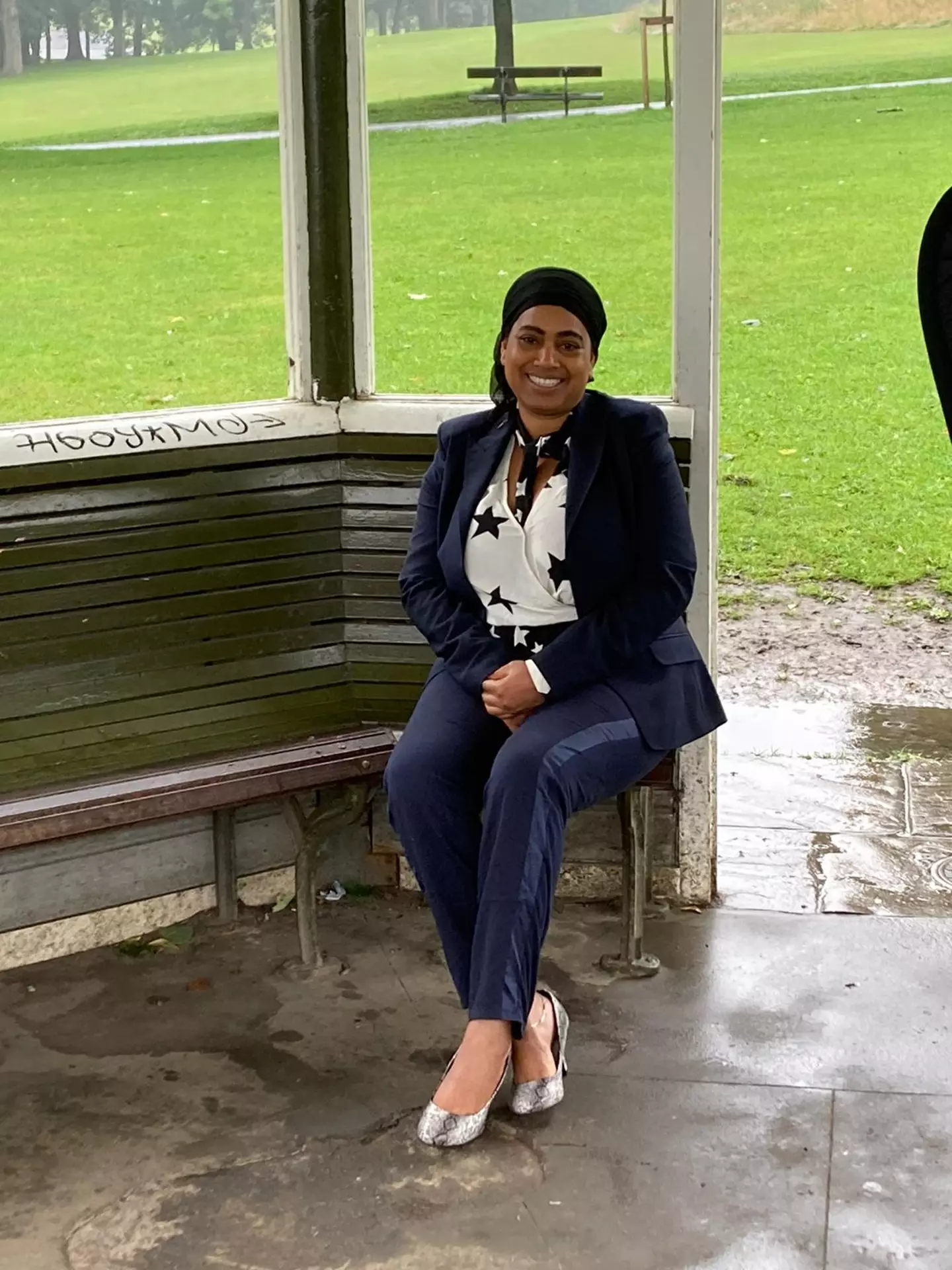
The tip was given to her by another asylum seeker at the time and, when Hawa moved to Leeds, she carried this piece of advice with her.
"When I saw newspapers, I used to take them to my house and save them for my monthly period," she revealed.
"People thought it was to read for our personal use," she added. "So it was a big barrier, we couldn't afford it."
Hawa would also use off-cuts of cloth from a tailor's shop and join them together to fashion her own makeshift pads as she was 'too embarrassed' to tell the tailor why she needed them.
Zubaida Umar Baba, a PhD researcher at the University of Leeds whose research focuses on the Internally Displaced People (IDP) in northern Nigeria, explained a little more about period poverty in refugee camps in regard to the lack of access to period products and other basic hygiene supplies.
Zubaida told UNILAD: "In the process of interviewing female IDPs (Internally Displaced People), I understood that they do not have access to sanitary pads because it’s not affordable to them.
"Noting that IDPs are the poorest people on earth, the majority of IDP women and girls use fabric textile materials from their clothes and cut them into pieces for use during their period cycle."
And it's not just the physical issue of a lack of adequate resources, as Zubaida explains that menstrual mismanagement affects IDP women in a whole plethora of other ways.
"First, menstruating women are not able to interact with people properly because they use fabrics that sometimes are unable to absorb the blood and could lead to blood spills and stains," she notes.
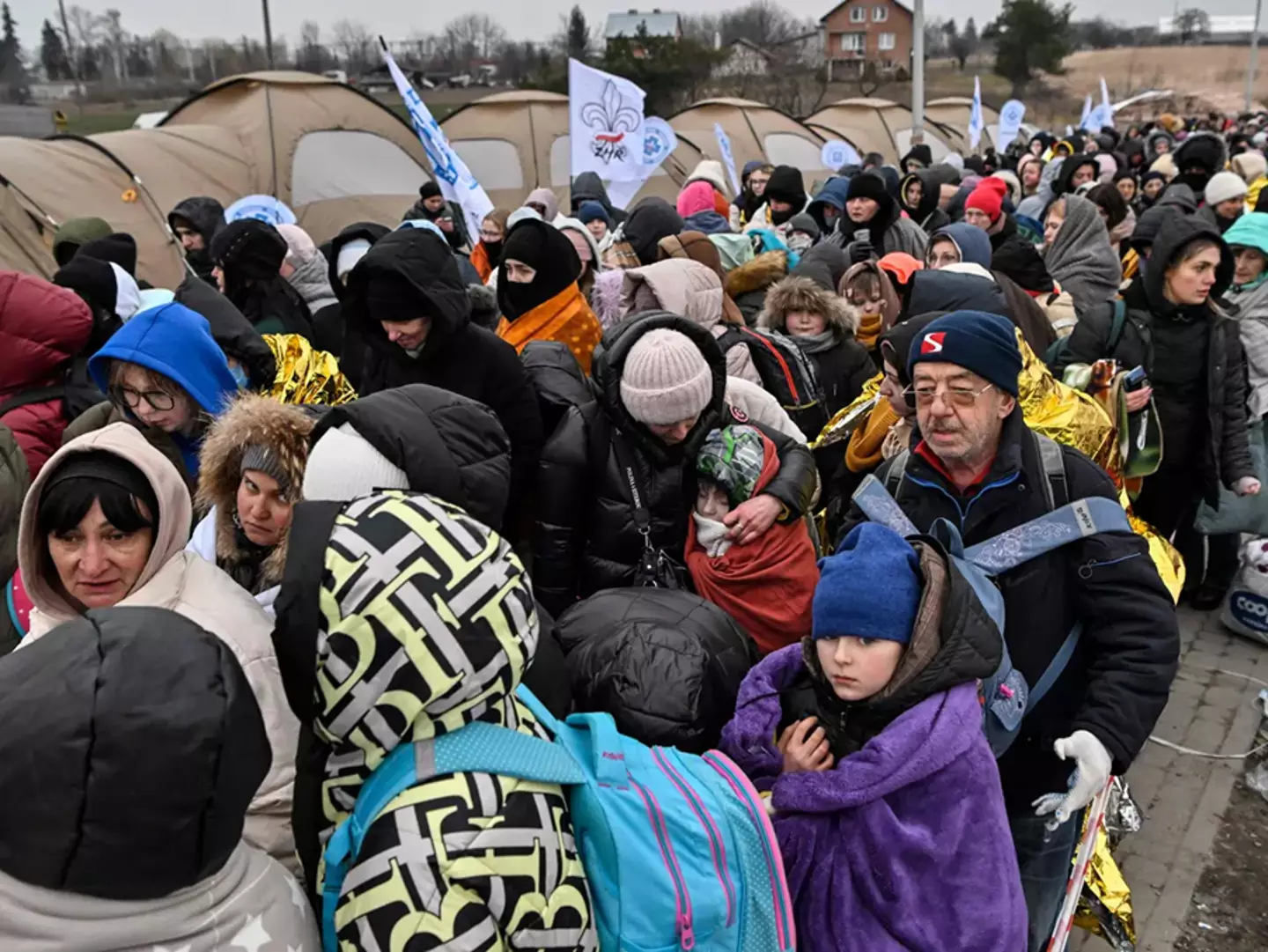
Such an incident could be seen as a 'shameful act from a cultural perspective'.
Hawa opened up to UNILAD about just how badly her mental health was affected by the lack of resources readily available in the asylum camp as well as when she was moved up to Leeds.
She talked about the 'trauma' she faced along with the relentless 'worry' she was plagued with about leaving the house.
"I would stay indoors as I was worried to go out in case it [the blood] came out," Hawa revealed.
Talking about just how much it affected her education, Hawa reiterated: "I was worried everyone would see it. It was embarrassing."
She also 'stopped going to college' and would end up staying home and 'calling in sick' over worries that she would bleed and make a 'mess' on one of the school chairs.
Zubaida explained the other two main issues that menstrual mismanagement negatively impacts people like Hawa.
She continued: "Second, lack of maintenance of these materials leads to women getting infected and ill during their menstrual cycles.
"Maintenance includes washing, drying and sanitizing these fabrics after every use."
The third issue, Zubaida outlines, is the lack of access to water in such camps.
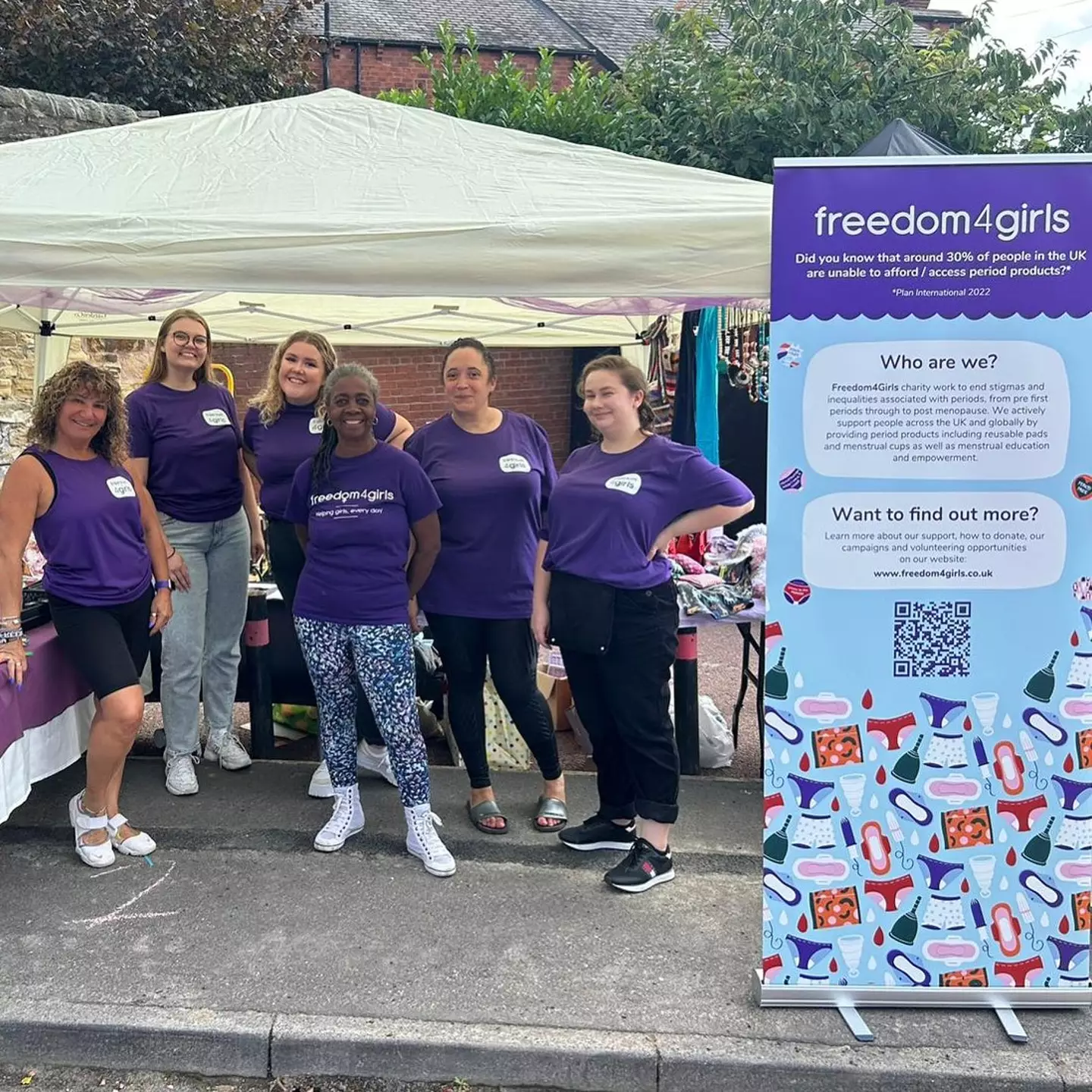
"Access to water is difficult and has resulted in women and children walking for many hours to get water from nearby streams for cooking and other essential household chores," she explained.
"Toilets in these camps are not equipped with running water, therefore women are often infected with toilet-related diseases, including those related to menstrual blood when women cannot clean themselves during these times."
In short, she says, menstruating people 'dread their monthly periods because of the negative effects it has on their wellbeing'.
Fortunately for Hawa, however, one particular charity made a major difference to her life.
The charity in question, Freedom4Girls, is a UK-registered charity fighting against period poverty geared around supporting those who menstruate by challenging the stigmas, taboos and gender inequalities associated with menstruation.
According to a 2019 UNHCR report, only 55 per cent of the people who menstruate in refugee camps actually have adequate access to period products and only 37 per cent have sufficient access to underwear.
Through providing education, offering out period products, promoting product choice and supporting environmentally and financially sustainable options, the charity has made incredible steps toward putting an end to period poverty and its impact on sex-based inequality.
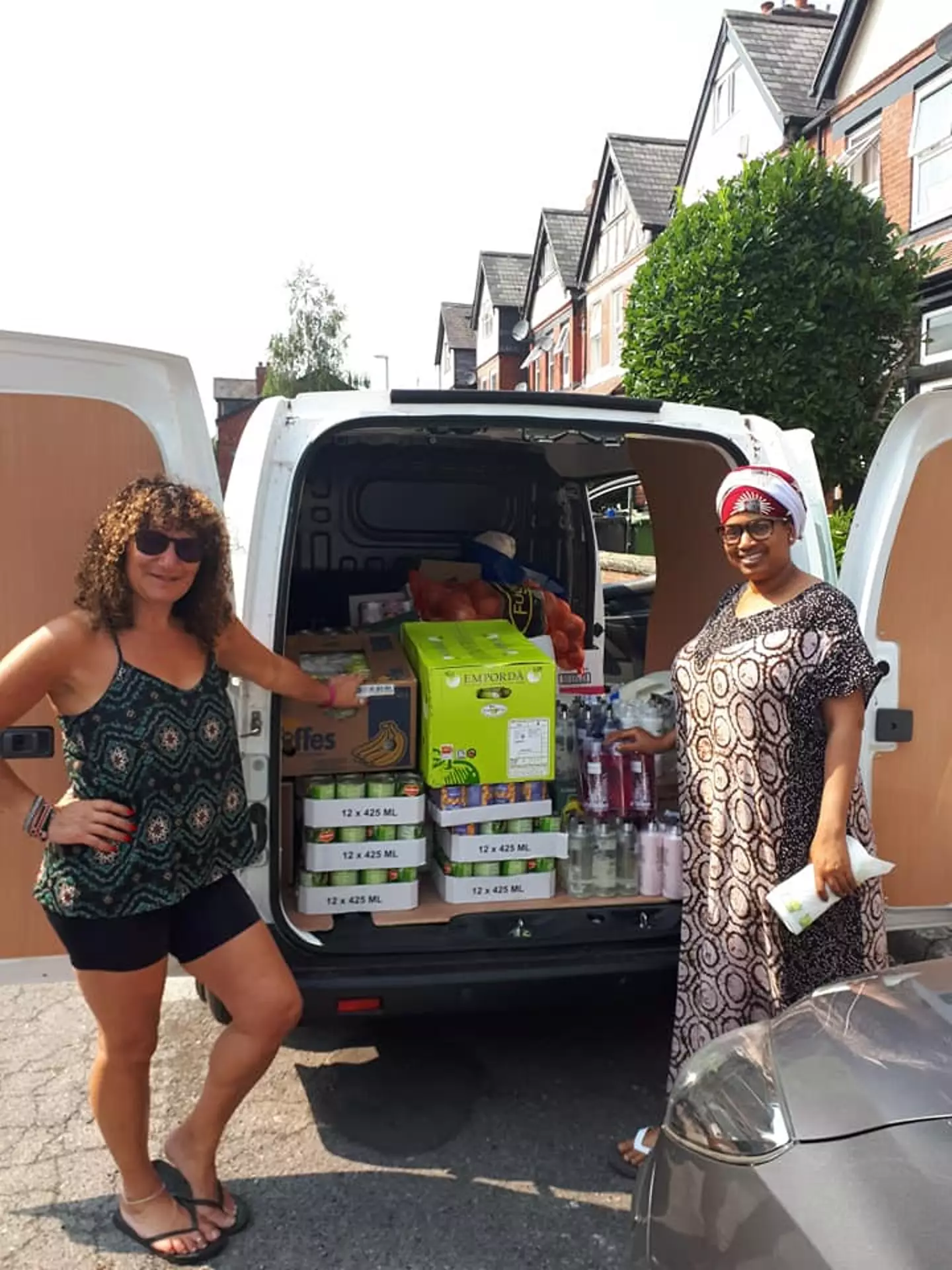
"Freedom4Girls has helped me a lot," Hawa told us. "Not only has the charity put a smile on my face but also my community's faces."
She continued: "We no longer have to worry about periods or pads because we know Freedom4Girls will give it to us."
"It's not easy because of this cost of living at the moment we're facing - everything," Hawa added. "And then you have to buy your pad. It's not easy."
Hawa is also the founder of HawaDal Peace of Mind, a charity organization aimed to provide support to people who are in need alongside victims of FGM, domestic violence and child forced marriage.
Her organization has since received the Queen's Award during the Platinum Jubilee year for its incredible fight against FGM, alongside its pivotal work in helping immigrants integrate into society, including helping them to learn English, removing barriers to licensing for certain occupations, and creating integration positions or task forces.
Hawa Dal Peace of Mind also helps to provide sustained support for refugees, asylum seekers and vulnerable migrant families who are struggling to feed themselves.
You can find out more about Hawa's charity here.
Topics: News, World News, Health, Politics, Mental Health, Life